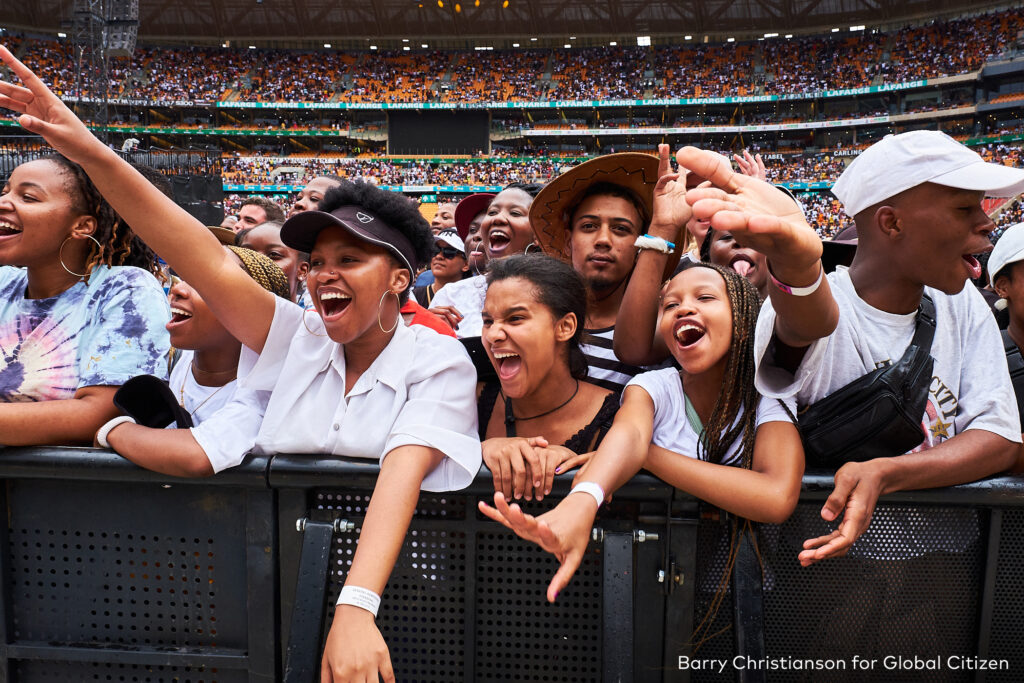As the Covid-19 pandemic continues to hit communities across Africa and around the world, governments across the region must continue to focus on keeping the education agenda going. Long-term resilience requires reaching the hardest hit areas of our continent to ensure both children and adults have equitable access to quality education, and to prevent the pandemic from overturning years of progress in educational improvements.
Mandela 100
Back in 2018 as the minister of general education for South Sudan, I attended international advocacy organisation Global Citizen’s Mandela 100 concert in Johannesburg. It was a ground-breaking event attended by more than 70 000 global citizens, who challenged governments to take concrete actions towards ending extreme poverty and its systemic causes. With performers including Beyoncé, Jay-Z and Sho Madjozi, and commitments from world leaders, philanthropists and the private sector, the event commemorated the legacy of Nelson Mandela, whose vision for peace and equality still resonates across the world today.

South Sudan’s commitments
Three years on and we continue to see the campaign’s legacy in South Sudan. On behalf of the country’s education ministry I made a series of commitments as part of the Mandela 100 initiative. Global Citizen provided us with a platform to highlight the challenges that the people of South Sudan face, together with the chance to speak to key influencers and decision-makers across the world.
Until last month, South Sudan was the world’s youngest republic. We have one of the lowest literacy rates worldwide with 34.5% of the adult population able to read and write. Adult literacy was one of my main concerns as a minister — helping to pull people out of poverty, preventing conflict and maintaining peace. When I was in office more than 208 000 South Sudanese adults were taking literacy classes.
As part of the Mandela 100 campaign, the South Sudanese government committed to allocating more than 10% of our annual budget to education in 2019, aiming to increase to 15% over the ensuing five years with an additional 5% of the annual education budget in training for civil servants. Over 2.2 million children were out of school in our country, yet education is particularly critical in conflict-affected environments like South Sudan. It remains imperative that we uphold the mission of our general education sector to provide equitable access to quality lifelong learning opportunities for all people.
Going to school should not be a lottery
South Sudan’s commitment was among more than $7.2 billion in funding commitments announced during the Mandela 100 campaign, and this week Global Citizen announced that $4.7 billion has been disbursed by governments, corporations and key organisations on the front line of ending extreme poverty in all its forms.
South Sudan’s ministry of education has worked on training teachers and increasing the availability of textbooks. We have had to be innovative to provide education in challenging circumstances, including funding shortages that have prevented large portions of our allocated budgets from being available.
A number of reforms have been made to the education system in South Sudan. The government is prioritising education by bolstering the infrastructure, along with working with partners to develop an improved national curriculum, raising the quality of education we can offer our children.
While I have left the ministry of education, the work continues to provide training, material and infrastructure improvements to our country’s education sector. The ministry’s director-general, George Mogga, has confirmed that 17% of projected public expenditure has currently been allocated to education, which, if met with expenditure levels, is well in excess of our commitment.
Three governmental bodies contribute to this: 10% by the ministry of general education and instruction; 6.87% by the ministry of higher education and 0.25% by the National Examinations Council.
Of the funding supplied by the ministry of general education and instruction, 92% is directed towards salaries, operation costs and top-up incentivisation for teachers, while the remaining 8% goes towards capital expenditure.
We need to continue to ensure we are bringing children into the education system, including those typically under-represented such as girls, and children with disabilities or in rural areas. Covid-19 has made this all the more essential.
There’s still a huge amount of work to be done as the pandemic led to school closures and learning was suspended throughout the country. The closure of schools amplified the challenges facing education and put in danger the progress the government had made. Today’s setbacks become tomorrow’s inequalities for our nation.
South Sudan’s Mandela 100 commitment was made with the intention to increase and maintain the annual budget allocation for education at 15% over a five year period, a target which the government is working hard to achieve.
As we head into 2022, the government must stay on track to fulfill our commitments, and work with partners to offer equitable access to quality education for all. As we know, not only is education a catalyst for economic growth but it also leads to the eradication of poverty. Therefore, we must leave no one behind.
This is an edited version of an article supplied by Global Citizen, ??the trading name of The Global Poverty Project UK Limited, a charitable organisation and limited company registered in England and Wales



